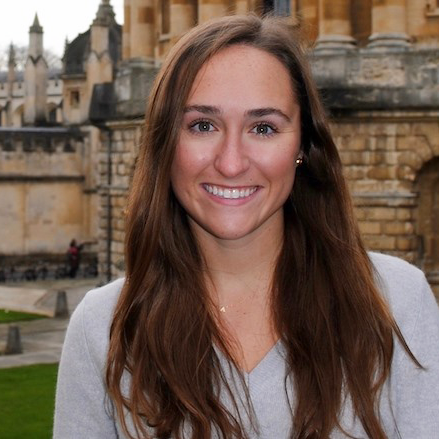Our courses are taught in a way that is relevant to our interest in health, but also encourages us to focus our futures on serving others and committing to Jesuit values like cura personalis.
About the Program
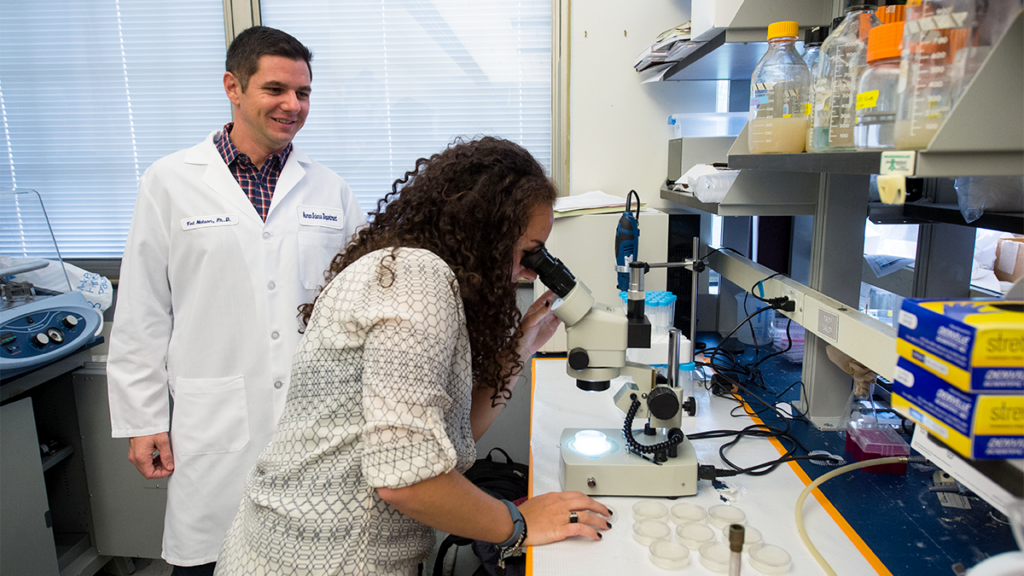
The Bachelor of Science in Human Science is a four-year program that provides undergraduate students with a strong scientific background in the context of human health.
The Human Science Program is known for:
- Exceptional outcomes in terms of career and graduate school placements
- Fellowships
- Pre-med and study abroad participation
- Excellent faculty mentorship
- Accelerated BS/MS Pathways
- Our graduates are positioned to excel in dental, medical, and public health programs – to name a few areas – or to enter the workforce.
Why Choose This Program?
- We emphasize translational science to benefit human health at the bedside and in the community, promoting health and preventing illness
- Different from a traditional biology major, the human science major allows students to study the application of scientific discoveries in biology, chemistry, mathematics, and physics to human health
- Students get hands-on experience in the Discovery Center teaching and research laboratory, and can explore other research possibilities on campus and in the greater Washington, D.C., area
- Research-based internships are incorporated into the program.
- Volunteer opportunities in the DC metro area allow students to contribute to the community
- Pre-med and study abroad opportunities are available.
Program Internships
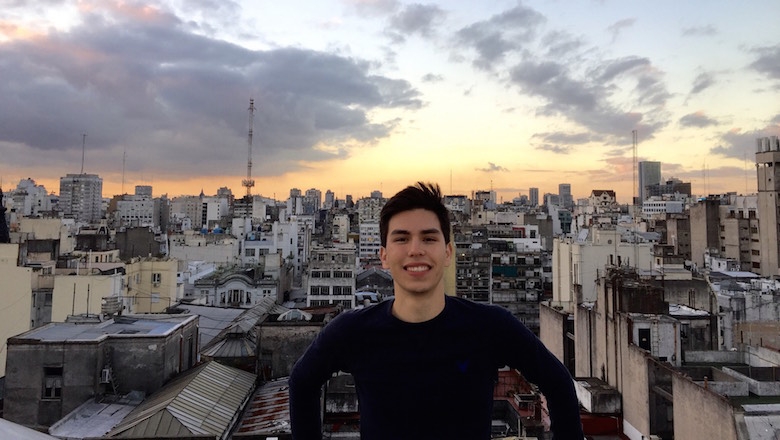
All students complete a research-based internship their senior year.
Founded by the Department of Human Science in 2007, the six-credit spring/summer Translational Health Science Internship takes place over six weeks in Buenos Aires, Argentina.
This internship provides students with the opportunity to participate in biomedical translational research in Argentina by embedding them into a team of local and U.S.-trained researchers and physicians studying the basic science and clinical effects of viruses that cause respiratory infections in infants, children, and adolescents. The course includes a classroom component and a laboratory component, along with field experience from shadowing certified physicians in pediatric hospitals.
Student Experience
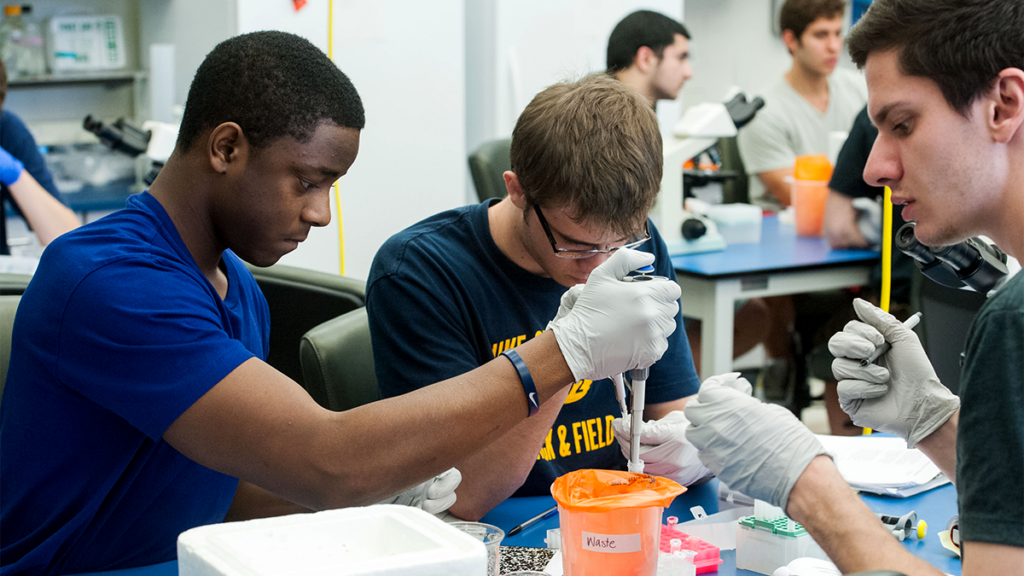
Human Science Program students have the opportunity to:
Pursue research as undergraduates
Each faculty member offers an independent research course for students. There are many other ways to participate in research with faculty, both within and outside of Human Science. These include opportunities to present and publish research findings.
Complete a research internship
All students complete a research-based internship their senior year.
Participate in the Undergraduate Research Conference
Founded in 2003 in what was then the School of Nursing & Health Studies, the Undergraduate Research Conference celebrates students investigating a variety of topics in science and health-related research. This event is organized by the Department of Human Science and includes presenters from across the University. Over 1,000 student posters have been presented since the conference’s inception.
Get hands-on experience in the Discovery Center
The Discovery Center is a scientific laboratory and classroom setting for faculty and student research projects. Undergraduate students have had the opportunity to present their research at various scientific meetings, as well as publish their findings in journals.
Serve as an EMT on campus
Georgetown Emergency Response Medical Service (GERMS) is one of the largest all-volunteer, student-run, university-based emergency ambulance services in the country.
Live their values
Participate in community-based opportunities to learn and give back. Our students have taught health literacy in Alaska, volunteered at nonprofits serving the Washington, D.C., and more.
Program Admissions
Application Deadlines
Early Action – November 1
Regular Decision – January 10
Transfer – March 1
Accelerated B.S./M.S. Pathway
Qualified Human Science students have a unique opportunity to earn a Master of Science degree through one of the participating programs from Biomedical Graduate Education at Georgetown University Medical Center. Accepted students earn the Bachelor of Science and Master of Science at an accelerated pace within five years (9-10 semesters), reducing the time and cost of completing the master’s degree. Additionally, graduate programs with a research option allow students to continue their scientific inquiry and deepen their dynamic investigation of a topic initiated by the Human Science capstone experience of the two-semester senior internship.
Highly motivated students with a minimum GPA of 3.5 in the major are eligible to apply for the accelerated master’s program no later than January 15 or October 1 of their junior year, depending on the program, and should inquire with Jason Tilan, Director of Accelerated BGE Pathways within the Department of Human Science.
Alumni Outcomes
Human science alumni have gone on to attend master’s and doctoral programs for public health, basic science, medicine, dentistry, and physical therapy at universities like Georgetown, George Washington, Harvard, Johns Hopkins, Michigan, Wake Forest, and Yale.
Graduates also enter the workforce in areas such as biotechnology research, health communication, and management consulting, joining organizations that include Booz Allen Hamilton, Deloitte, and the National Institutes of Health.
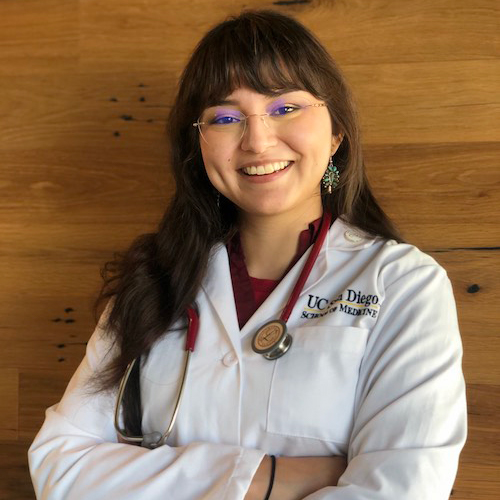
Medical school has been great so far… I feel like Georgetown has sufficiently prepared me for the work I have ahead of me.
Current Students
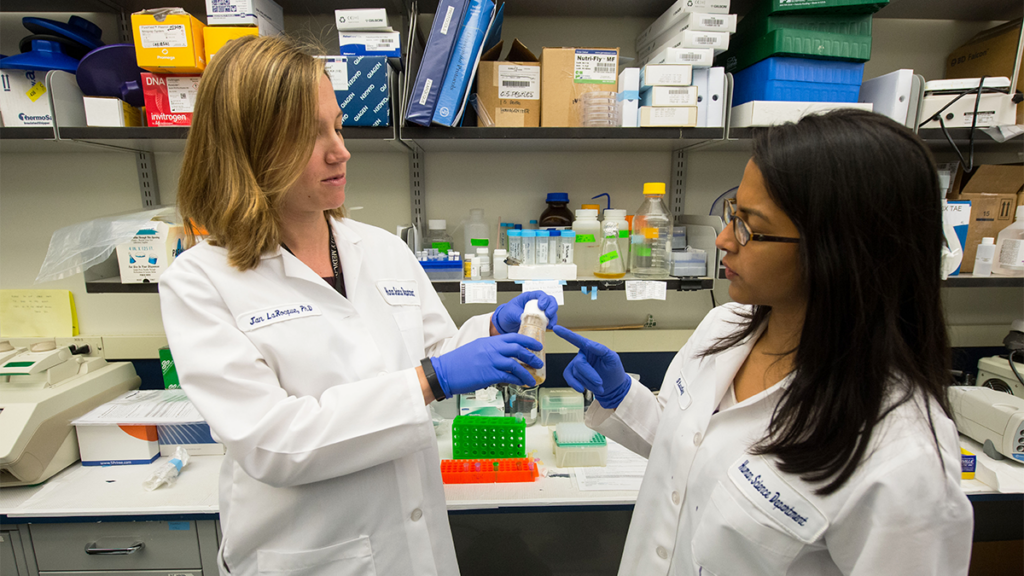
Schedule a meeting with your academic dean or visit our student resources page for academic calendars and other information.
Honors Program in Human Science
The Honors Program in Human Science recognizes those students pursuing a high level of independent discovery research (laboratory, archival, community, epidemiological) during their undergraduate years, culminating in a senior undergraduate thesis as they complete their Human Science major course of study. The program requires a significant mentored research experience in a topic of the student’s choosing.
Writing in the Major
Written professional communication is often standardized for scientific presentation and emphasizes disseminating complex ideas and data clearly, precisely, and concisely. Students majoring in Human Science (HSCI) are introduced to a variety of scientific communication (e.g., grant proposals, protocols, scientific literature and oral presentations) in their required introductory course, “Research Theory and Communication in Science and Healthcare.” Additional scientific writings in most required courses build upon data presentation, and communication is polished during the Senior Internship course, which includes a research proposal, final paper and poster presentation.
Faculty and Research Interests
Our expert faculty teach and mentor students in the health sciences, create exciting opportunities for research and scholarship, and position graduates to excel.
Dr. Pablo Irusta
Chair and Associate Professor
(Cell Signaling, Respiratory Viruses, Cell Cycle, Aging)
Dr. Allan Angerio
Associate Professor Emeritus
Dr. Ilona Argirion
Assistant Professor
(Epidemiology, Cancer Biology, Data Analytics, Infectious Diseases, Global Health)
Dr. Jan LaRocque
Associate Professor
(Genetics, Genome Instability, DNA Damage and Repair)
Dr. Allison Marshall
Assistant Professor
(Food Security, Health Equity)
Dr. Daniel Merenstein
Professor
(Clinical Trials, Probiotics, Antibiotic Stewardship, HIV Research, Complementary and Alternative Medicine, Primary Care Medicine)
Dr. Ted Nelson
Associate Professor
(Neuroscience, Sensory Systems, Taste Behavior and Genetics, C. elegans)
Joan Riley
Associate Professor
(Health Promotion, Well Being, College Student Development, Curriculum Infusion)
Dr. Blythe Shepard
Dekkers Endowed Chair in Human Science and Assistant Professor
(Kidney, Glucose Handling, Olfactory Receptors, and Diabetes)
Dr. Rosemary Sokas
Professor
(Occupational Health)
Dr. Alex Theos
Associate Professor
(Cell Biology, Lysosome-Related Organelle Biogenesis)
Dr. Jason Tilan
Associate Professor
(Vascular Physiology, Arteriogenesis and Angiogenesis, Tumor Angiogenesis, Stress Physiology)
Ms. Carol Hom
Program Manager

